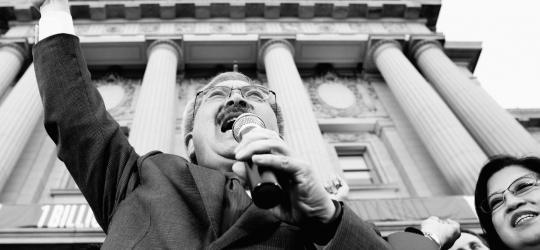People are talking about this article from Sunday’s San Francisco Chronicle about how much three fall ballot measures will cost the city, but many progressives and political outsiders are more focused on the juicy details lower down in the article about the spiteful, bullying political tactics practiced by the Mayor’s Office these days.
Mayor Ed Lee and his top aides are said to be “fuming” that Sup. Scott Wiener and five of his colleagues placed a measure on the fall ballot that would give Muni more money as the city’s population increases — and that “the mayor’s office seems to be hinting that it will target programs important to the six supervisors who voted to place Wiener’s proposal on the ballot.”
The measure is retroactive to 2003, the last time Muni had an increase in its funding from the city General Fund, so it would mean an immediate funding bump of $20 million or more, which the mayor is disingenuousnessly casting as budget buster. Keep in mind this same mayor unilaterally ended Sunday meters this year, costing Muni about $10 million a year, and supports corporate welfare programs that cost the city $17 million last year.
This spiteful and retaliatory approach to public policy by Lee, the elected official with the most control over the city’s pursestrings, and his minions was also a big factor in Sup. Jane Kim’s capitulation to the Mayor’s Office on her housing balance measure. Sources tell the Guardian that affordable housing advocates were threatened with reduced city funding from the Mayor’s Office if they continued to push for Kim’s original measure.
The Chronicle article was based largely on a Controller’s Office memo claiming the three ballot measures — the Muni measure, a proposal to increase the minimum wage to $15 by 2018, and reauthorization of the Children’s Fund — would be the “largest voter-directed increase in general fund spending in a single election in city history,” costing $104 million by 2018.
More than half of that is from the minimum wage increase, which will increase the city’s cost of contracting low-paid nonprofit workers to perform public services. But in this increasingly expensive city, does anyone really think $15 per hour is an unreasonable wage? Should the city itself be exploiting workers?
After the city recently slashed building and planning fees charged to developers, and in a city that continues to coddle big corporations and landlords rather than tax them fairly, the Mayor’s Office ire over policies that help low-wage workers and Muni riders is particularly telling of its values and priorities.

